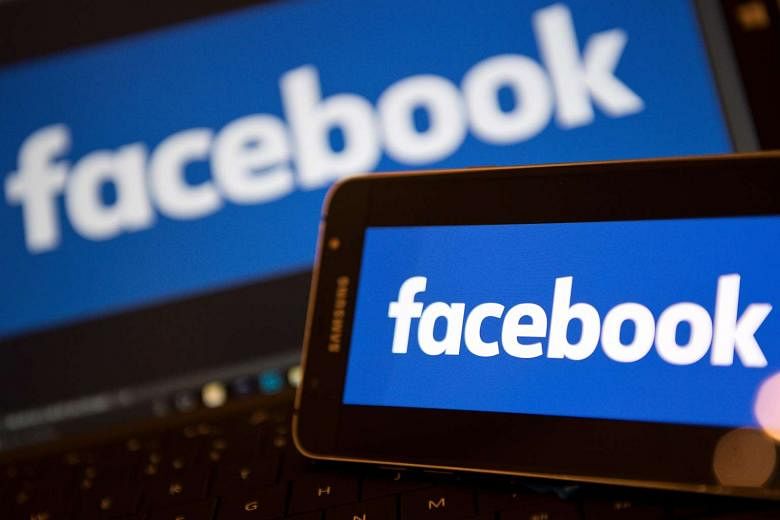Before social media, there were diaries. My first one was a pink Winnie the Pooh hardback in which I scribbled daily happenings in pencil.
But it was only when I wandered onto the vast realm of the Internet and discovered blogging, that I truly became invested in the chronicle of myself.
I come from the generation of Blogspot and Livejournal, which is ancient by the standards of kids today.
When I was 13, everyone who was anyone in my Sec 1 class had a blog.
We decked them out with geeky Elvish quotes from Lord Of The Rings, hyperlinks that exploded into stars when you hovered over them, and the angsty soundtracks of Evanescence or Maroon 5.
I shudder sometimes when I think back on these blogs, with their epic outpourings of youthful angst and the myriad obsessions that characterise a teenage girl's existence.
I was capable, in those days, of writing reams and reams about my everyday thoughts - a longwindedness that the parlance of the Internet refers to as "tl;dr" (too long, didn't read).
But cringeworthy as it was, blogging proved crucial in learning how to understand myself.
Labouring over these posts taught me to structure the way I produced the narrative of my life.
When I had nothing to do - whether sitting on the bus, or queuing for lunch - the events of the day would start to shape themselves in my head into a story.
That is no longer the case.
The trend of self-chronicling is nothing new. People have written diaries since time immemorial.
What is unprecedented is how, in the space of a few years, the evolution of social media has irrevocably changed the way we record our lives.
From the enforced brevity of Twitter to the instantaneous captures of Instagram, social media platforms are making self-expression easier by relentlessly chipping away at the lengths we go to express ourselves.
The slow death of my blog came about in part because of the advent of Facebook.
Facebook required so much less effort than blogging - piecemeal posts over the span of a day instead of a coherent story.
The Likes also made me feel good. The instant feedback made me feel like people were finally paying attention.
Last year, I discovered Instagram and was promptly consumed by the simplicity of it.
Why would you labour over trying to put your experience into words, when you could just snap a photo, throw in a pithy caption and a couple of hashtags, and upload it at once for everyone to appreciate?
In July last year, I went travelling in Morocco with an old friend. We have known each other since we were 13, and used to be avid readers of each others' angsty, Elvish-riddled blogs.
As I searched for cafe Wi-Fi so I could upload photos of ancient medinas, she said: "I miss the days when you wrote down what we did instead of just Instagramming it."
Her words got me thinking. We are certainly more expressive than we have ever been, in terms of quantity - but is this reflected in the quality of our expression?
Certainly, I devote almost no time these days to the contemplation of my internal narrative. If I am not taking quick snapshots of my life, I am scrolling endlessly through quick snapshots of other people's.
The dictionary of obscure sorrows should contain a word for the particular sadness you feel when you reach the bottom of your Instagram feed and realise you are looking at photos you have already seen.
Then you just keep refreshing, hoping somebody will post some new image which you will consume in a few seconds.
In a series of studies published in 2014 by psychologists at Virginia and Harvard Universities, people were left alone in a room for six to 15 minutes and told to do nothing but think.
As expected, most of the subjects found being left alone with their thoughts unbearable.
What was most surprising, though, was that when one group was given the option of administering electric shocks to themselves, two-thirds of the men and a quarter of the women chose to do so rather than have nothing to do.
It sounds alarming, doesn't it, that people would rather electrocute themselves rather than just sit and think about their day?
But take my smartphone away from me while I'm stuck in the queue for bubble tea and it no longer seems so far-fetched.
Meanwhile, social media continues to invent ways to keep our updates faster, briefer, and more ephemeral than ever.
Kids these days tell me Facebook is passe. My younger cousins are now into Snapchat, which allows you to send friends photos and videos which vanish within a 10-second to 24-hour window.
From textual narratives, we have moved to textual snippets, to images, to images which self-destruct after being seen.
All this has certainly made it easier to express ourselves, but at what cost to the self we are trying to express?
I am beginning to fear social media has robbed me of self-discourse.
Instead of shaping the narrative of my days, perhaps I will never be capable of anything more than documenting my life in bits and bobs, tossing them without further thought into the slipstream of other people's newsfeeds.
How do we recover this self-discourse? How do we, as T. S. Eliot writes in The Waste Land, shore these fragments against our ruins?
When Eliot composed his epic poem on modern alienation, he never conceived the existence of something like Snapchat. His words, though, prove uncannily prescient.
Perhaps it is time to make myself lay the smartphone to rest - not forever, but for a brief space every day.
Instead of an app, I should look again at blank canvas and force my thoughts into line.
Only then will I make the narrative of myself whole again, and relearn how to tell stories the way they should be told.


